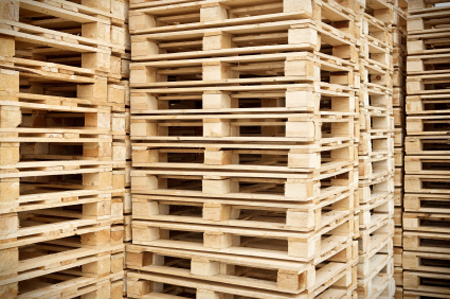Not all wooden pallets are recyclable, but most of them are! Whether a pallet can be recycled depends on factors like the type of wood, its condition, and any treatments or contaminants it has undergone. Here’s a breakdown:
Types of Wooden Pallets
- Heat-Treated (HT) Pallets
- Marked with “HT” on the stamp.
- Treated using heat to kill pests, making them safe for reuse and recycling.
- These are the most recyclable and can be safely repurposed for furniture, compost bins, or other projects.
- Chemically Treated Pallets
- Marked with “MB” (Methyl Bromide) or other chemical indicators.
- Treated with toxic chemicals to prevent pest infestation.
- These are not safe for recycling into projects involving human or pet contact, like furniture or garden beds.
- They may need to be disposed of in accordance with local hazardous waste regulations.
- Unstamped or Domestic Pallets
- Often untreated and made for single-use.
- Safe for recycling if in good condition.
- Common in local shipping and small-scale operations.
Factors Affecting Recyclability
- Condition
- Pallets with significant damage, rot, or mold may not be recyclable.
- However, parts of damaged pallets can often be salvaged.
- Contaminants
- If a pallet has been exposed to hazardous chemicals, oils, or other pollutants, it may not be recyclable.
- Type of Wood
- Most pallets are made from softwood or hardwood, which are recyclable if untreated.
Ways to Recycle Wooden Pallets
- Repurposing
- Turn them into furniture, garden planters, compost bins, or firewood.
- Recycling Centers
- Many recycling centers accept pallets and process them into mulch, wood chips, or new wood products.
- Pallet Recycling Companies
- Some companies specialize in refurbishing pallets for resale or creating new products from old pallets.
- Donating or Selling
- Offer pallets to local businesses, crafters, or recycling groups.
How to Identify Recyclable Pallets
- Check for Stamps: Look for the “HT” or “MB” stamp to determine treatment type.
- Inspect Condition: Ensure the pallet is free of contaminants, rot, or mold.
- Know the Source: Pallets from food or beverage industries are often cleaner and safer for reuse.
If you’re unsure about a specific pallet, you can contact a local recycling or waste management company for guidance.
Whether you’re looking for used or new pallets for your next weekend project AAA Pallets has you covered.





